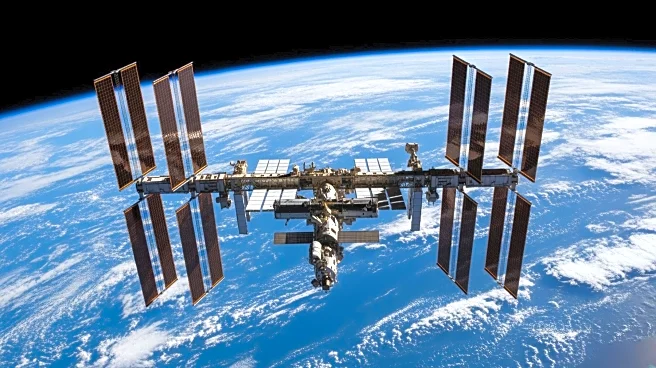What's Happening?
NASA astronaut Zena Cardman, currently aboard the International Space Station (ISS), shared insights on the evolving landscape of space exploration during a conversation with Libby Casey from the Washington
Post. Cardman highlighted the significant changes in the space industry, including the introduction of commercial crew programs and the Artemis missions. She emphasized the importance of international collaboration in space endeavors, noting the diverse team aboard the ISS and the upcoming Artemis mission's international partnerships. Cardman also discussed the scientific research conducted on the ISS, particularly studies on the human body's adaptation to space, which have implications for both space travel and Earth-based health challenges.
Why It's Important?
The developments in space exploration, as discussed by Cardman, signify a shift towards more inclusive and collaborative efforts in the industry. The expansion of commercial space programs and international partnerships could lead to accelerated advancements in technology and research. This evolution not only enhances the capabilities for future missions to the moon and Mars but also fosters diplomatic relations through shared scientific goals. The research conducted on the ISS has the potential to benefit Earth by providing insights into health issues faced by aging and immunocompromised populations, demonstrating the broader impact of space exploration on society.
What's Next?
The Artemis missions, set to launch next year, represent a pivotal moment in space exploration, aiming to establish sustainable human presence on the moon. Cardman expressed excitement about the scientific and collaborative opportunities these missions present. As the space industry continues to grow, more diverse pathways to becoming an astronaut are emerging, encouraging participation from a wider range of backgrounds. The ongoing research and international cooperation on the ISS will likely continue to drive innovation and inspire future generations to engage in space exploration.









